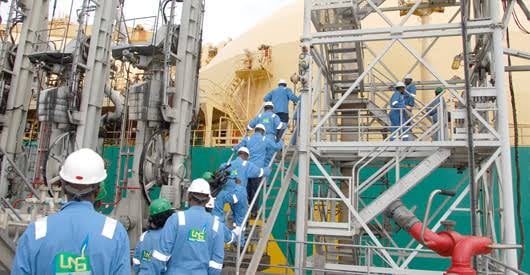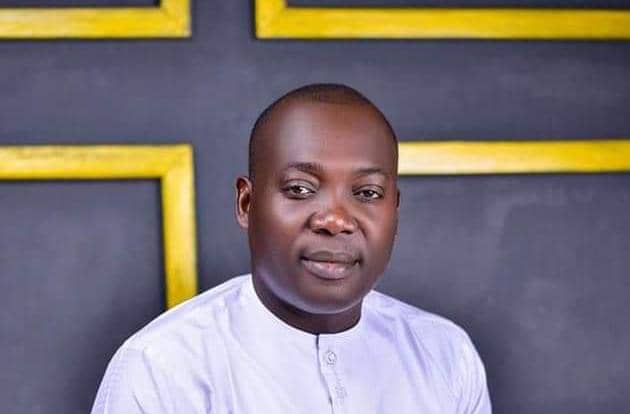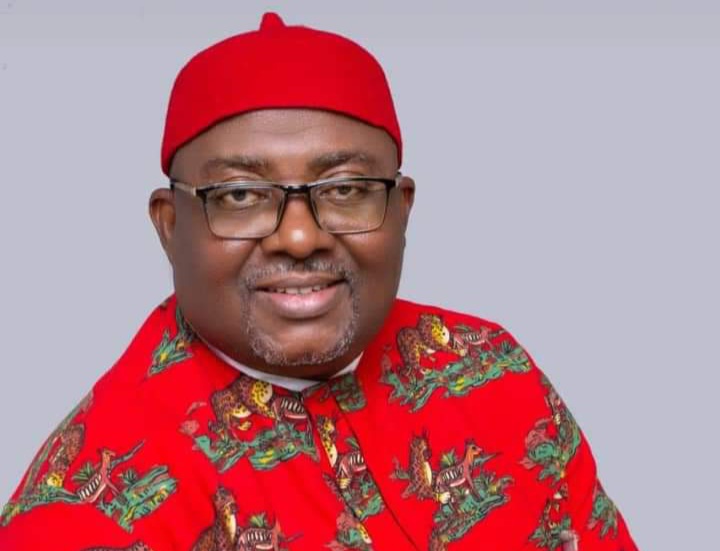A confession is in order this early Sunday morning. Although I was quite sceptical about the electioneering rhetoric of the All Progressives Congress (APC) ahead of the 2015 general election — in fact, I said as much in a series of articles, including one with the title: “Where is the Beef?” (March 1, 2015) — I finally dropped my guard when I saw the party’s policy proposals after President Muhammadu Buhari’s inauguration. The transition committee, headed by the late Alhaji Ahmed Joda, made a number of far-reaching policy recommendations covering removing fuel subsidies, revamping the refineries and reducing of the number of senior ministers. I was impressed.
The aspect that really caught my fancy was the plan to revive the refineries through what the committee called the “NLNG Model”. The Nigeria LNG Limited (NLNG) is owned by four shareholders: Federal Government of Nigeria (FGN), 49 per cent; Shell Gas, 25.6 per cent; Total Gaz Electricite Holdings France, 15 per cent; and Eni International, 10.4 per cent. Although Nigeria is the single largest shareholder through the Nigerian National Petroleum Corporation (NNPC), Shell Gas, Total Gaz and Eni International own a combined 51 per cent stake. When it comes to sharing the dividends, the Nigerian government takes nearly double what Shell, the next biggest partner, gets.
The real deal, for me, is that NLNG is not managed by Nigeria or the NNPC. Otherwise, it would have been run aground ages ago — that is if it took off at all. Is it NNPC that cannot run a mega filling station that will manage one of the world’s biggest liquefied national gas projects? Are you kidding me? When the APC committee recommended the “NLNG Model” for the refineries — which means Nigeria would still hold the biggest stake, thereby accommodating a bit of the sentiments of the anti-privatisation movement, but they would not be managed by NNPC — I was somewhat excited. I felt we were about to finally break the jinx around the refineries. It turned out I was completely wrong.
The Buhari administration, like all previous administrations, ignored the proposal and decided to sink more billions of dollars to “revive” the refineries. In 2007, President Olusegun Obasanjo had managed to sell two of the refineries after spending billions on turn around maintenance but President Umaru Musa Yar’Adua nullified it as NNPC promised they would come back to life “within two years” if we parted with more billions. President Goodluck Jonathan’s governmentalso said the refineries would be “back to life” if we spentanother batch of billions. Today, we are spending another $1.5 billion on Port Harcourt refineries alone to bring them “back to life”. What a country.
Advertisement
But in case you are temped to write Nigeria off on the basis of these shenanigans and conclude that the country is doomed to fail and nothing can ever work here, take a deep breath. The “NLNG Model” is one reason to be hopeful. The NLNG was incorporated on May 17, 1989 by the military government of Gen Ibrahim Babangida to exploit and export our enormous natural gas resources: the liquefied natural gas and the natural gas liquids. Exactly 33 years on, it has become one of the biggest success stories to have come out of Nigeria since 1914. What this tells an optimist like me is that with the right leadership, right policies and right culture, we can indeed get some things right.
Between 1999, when NLNG exported its first cargo, and today, Nigeria has been reaping bountiful harvest from its stake — principally because we got the management right. NLNG has paid dividends in excess of $18 billion over the period, according to information on its website. If we had run it like NNPC, NLNG would have been declaring losses. Aramco — NNPC’s mate in Saudi Arabia — just declared a net income of $39.5bn for Q1 2022. Our own NNPC cannot even remit sale proceeds to the federation account, much less declare genuine profit. They get crude allocation for the refineries that don’t work and, in turn, use it to part-subsidise petrol as directed by the political authorities.
Nevertheless, I am not here to lament or curse our luck. I am here to highlight what is possible in this same Nigeria. I am here to underscore why we should not throw up our hands in surrender anytime we get overwhelmed by the commotion and bleakness around us. It is difficult to keep hope alive in a country plagued with poor leadership and all the debilitatingpathologies that come with it. If nothing else, the NLNG success story should tell us that there is nothing fundamentally wrong with the Nigerian water, topography, temperature, humidity and atmosphere. We should rather beencouraged to face the hard questions on why we are not replicating the NLNG story elsewhere.
Advertisement
There is a tendency to focus all of our attention on what NLNG Ltd has contributed to the national purse in the last 33 years — such as the $9 billion it has paid in taxes; or the $18 billion dividends; or loan repayments and interests; or the inflow of $17.5 billion FDI mostly for the construction works;or the $15 billion it has paid to the federal government for feed gas since inception; or its growing contribution to the GDP; or the tens of thousands of jobs it has generated directly and indirectly; or its enormous impact on developing and encouraging local content in engineering and procurement; or the $1.2 billion finance scheme to facilitate access to funds for its Nigerian vendors.
While these have impacted positively on the industry and the economy, NLNG Ltd’s contributions to other non-core areas are equally important: be it the sponsorship of some of biggest and most prestigious prizes in Africa for science, literature, and literary criticism; be it the health insurance initiative for residents of its host community, Bonny Island, in partnership with the Rivers state government and Bonny Kingdom; be it the malaria eradication programme; or be it the support programme for 12 teaching hospitals across the six geopolitical zones and Abuja, covering renovating or re-equipping gynaecology and maternity wards or building intensive care units.
Nigeria’s oil-producing communities often complain about neglect and one sore thumb that always stood out was the fact that Bonny Island was cut off from the rest of Rivers state because of a lack of bridge. Trips are done by boats and a journey that should take not more than 30 minutes by road can last for nearly two hours, along with the risks, dangers and financial cost. For years, government promised to build the road but a combination of factors not unrelated to paucity of funds and youth restiveness stalled it. The construction of the 39km-long Bodo-Bonny road finally commenced in 2017, with NLNG Ltd picking 50 per cent of the total bill of N120.6 billion via tax credits.
Above all, this is the core of my excitement: in case you think NLNG is run by Europeans, you are dead wrong. Its senior management is fully Nigerian. The MD is Nigerian. Although there is the unseen hand of the multinationals, some of the managers have garnered world-class experiences over the decades working home and abroad — including in The Netherlands, Trinidad & Tobago, France, UK and Norway. Ironically, some of them have worked with the NNPC. But they have a different work ethic and corporate culture at NLNG. Same Nigerians. We must never stop pondering this question: why do so many Nigerians do well in the private sector compared to the public sector?
Advertisement
Let me now tell you a sad story. The NLG projects were originally approved by the federal military government in 1975. In fact, the Bonny LNG Limited (BLNG) was incorporated in 1976. It was to be the biggest LNG project in the world at the time, but government itself became the biggest obstacle. As it is our custom in Nigeria, when one president goes and another comes in, projects are inevitably affected. By 1982, foreign investors had lost interest in BNLG. We do not have a culture of continuity. Only God knows how many court cases we have across the world because of abandoned or cancelled contracts simply because of a change of government. That is the story of Nigeria.
Kudos to Babangida for getting the NLG project back on track in 1989. More kudos to Gen Sani Abacha who did everything to ensure the take-off of the project by providing seed funding and enacting enabling laws, providing country guarantees and granting a range of concessions, including tax holiday and waivers. The vision of making it wholly Nigerian has always been there. Of all the investments ever made by Nigeria, the NLNG is by far the most successful. The question that many rational observers would ask is: if this governance model has worked for us so well, why can’t we apply it to other things under government control? We need leaders who can think outside the box.
Another opportunity to reboot Nigeria through the ballot is around the corner. Nigeria can be great. We should resist the temptation to give up or give in. Our circumstances are damning and the future looks forlorn but it takes just a major U-turn for things to start falling into place. That is why we have to remain positive and never write Nigeria off. For me, the success story of the NLNG is built on the excellent model of competent leadership, merit-based recruitment that also accommodates the host community, solid succession planning as well as world-class work ethic and corporate culture. Apply these basics to the leadership of Nigeria and we will become a different country in a matter of time.
AND FOUR OTHER THINGS…
MOB INJUSTICE
Advertisement
We were still mourning the blood-chilling lynching of Deborah Samuel over alleged blasphemy in Sokoto when David Sunday Imoh, a sound engineer, was brutalised to deathby commercial motorcyclists in Lekki, Lagos state. It would seem lynching has become entrenched as a legitimate course of action in Nigeria. These incidents brought back sad memories of the October 2012 lynching of four innocent students of the University of Port Harcourt in Aluu, Rivers state. Lynching is nothing but jungle justice and we need to clamp down on it with everything we have. However, it will take a lot of work because the problem starts from the mindset of lack of value for human life. Primitive.
RESTRAIN AND RESPECT
Advertisement
Can we make the Deborah tragedy a turning point in the management of toxic religious relations in Nigeria? While condemning the dastardly act, the Christian Association of Nigeria (CAN) also voiced out the need to respect other people’s beliefs. That is a major statement that runs counter to the dangerous “free speech” argument. Sheikh Ahmad Abubakar Gumi, prominent Islamic cleric, has also said there is no place in Islam for lynching an alleged blasphemer. I am seeing a huge opportunity for peace-building in these statements coming from the two divides. Extremism and hostility will not solve any problem. We must learn to live and let live, for God’s sake. Respect.
DEI-DEI DEATHS
Advertisement
How does the death of a passenger in an accident become another source of ethnic conflict? That, again, is what we heard about the riot that broke out at the Dei-Dei market, a suburb of Abuja, on Wednesday. At the end of the mayhem, four persons lay dead and property worth millions of nairadestroyed. The passenger, a woman, was crushed to death by a hit-and-run trailer who was eventually arrested. But as the motorcyclist reportedly tried to retrieve the bike, traders restrained him. His fellow motorcyclists came together to fight back. And then it became an inter-ethnic fight. How many lives do we have to waste before we finally come to our senses in this country? Senseless.
RESIGN AND RETURN
Advertisement
No matter what you think about this government, you can never say it is lacking in drama. After President Muhammadu Buhari had held a valedictory session for ministers who had been directed to resign to go and contest for various political offices, four of them made a U-turn and attended the next cabinet meeting. In what country does this happen? Some lawyers have argued that if a minister resigns, the process of return or replacement has to go through the senate. That is why if a new government is going to return a minister, the process involves another senate screening. But we are in an era of anything-goes and an Umuahia court injunction may bein the offing. Scandalous.
Add a comment







